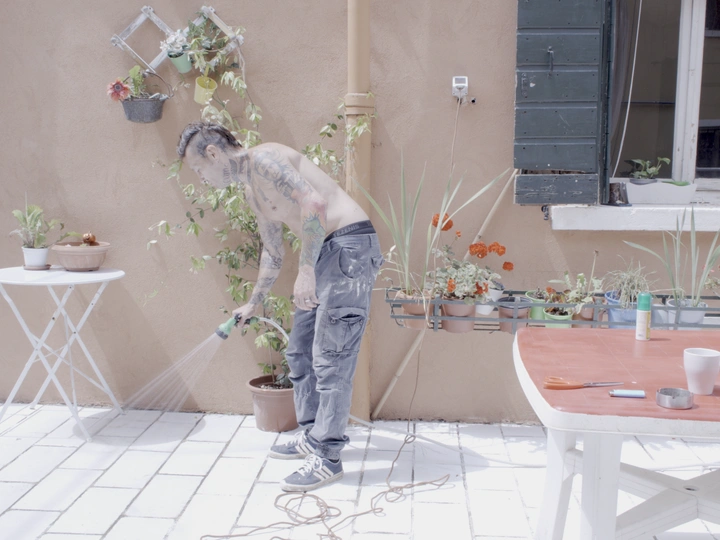Reclaiming Public Housing by Squatting and Repair

After completing my Bachelor's degree at Bauhaus University Weimar, I worked in architecture offices in Brussels, Basel, and Berlin. I am currently finishing my architecture studies at the University of the Arts Berlin in collaboration with ETH Zurich. During an exchange at the Academy of Fine Arts Vienna, I had the opportunity to attend the Art and Media class.
My work includes writing collaborations (e.g. Basel Anthropological Papers: Drawings 1), editorial work (e.g. Protocol Magazine Nonkonforme Architekturpraxis), and filmmaking that employs ethnographic and spatial methods. Footage from my video installation was featured in the film "Housing for All" at the Venice Biennale in the Austrian Pavilion and my first documentary film, previewed at mumok Vienna, will be shown at the Triennale der Moderne in Berlin, featured by ARCH+ Salon.
I aim to build a long-term practice at the intersection of spatial analysis, storytelling, and political engagement—using film, drawings, and writing to explore collective housing practices, self-construction, and urban resistance. By documenting housing occupations and practices of repair and commons, I am developing a growing thematic archive of spatial strategies that challenge financialized urban development. These lived practices offer processual, relational, and community-centered alternatives that contribute to rethinking housing and architectural production today.
This project comprises a documentary film as part of a multimedia research project exploring how the organization Assemblea per la Casa (ASC) in Venice reclaims housing rights and communal spaces by squatting public housing often left vacant for decades. Through film, mappings, and theoretical analysis, I investigate how collective self-construction fosters both material repair practices and immaterial care structures embedded in political strategies.
Venice exemplifies contemporary urban conditions: 40% of its housing stock is either dilapidated or used for tourism, while residents face displacement and precarity under speculative pressures. ASC counters this by creating alternative spatial commons through diverse forms of resistance: operating in legal grey zones, transforming abandoned buildings through repair, building care networks, and using public assemblies to assert collective demands.
Facing increasing repression and the need to prove the value of their work publicly and legally in court, ASC documents their daily activities in multiple ways. Building on their practice and expanding the documentation instruments, I employ ethnographic observation, film to capture performative resistance, architectural mappings to reveal spatial practices, and theoretical analysis to situate strategies within broader debates on commons, care, and urban resistance. The project aims to show how documentation becomes an architectural-political tool.
Their architectural and political approach to securing affordable housing challenges conventional urban planning by prioritizing repair over new construction, communal value over market logic, and ongoing processes over finalized buildings. It highlights how marginalized communities develop spatial strategies offering regenerative alternatives for urban development.
My proposal emerges from my free Masterthesis, supervised by Prof. Dr. Susanne Hauser / Romy Kießling (UdK), and Prof. Dr. Anna Puigjaner/ Ethel Baraona Pohl (ETH).